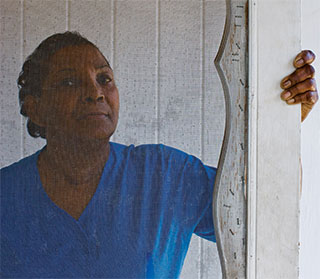
Brandon Bourdages/Shutterstock
On Wednesday, the US Supreme Court will hear a case that has the potential to give big corporations free rein to write contracts that prevent consumers from ever holding them accountable for fraud, antitrust violations, or any other abuses of consumer and worker protection laws now on the books. It’s a case that hasn’t gotten much attention, but should.
The case, Italian Color v. American Express, was brought by a California Italian restaurant and a group of other small businesses that tried to sue the credit card behemoth for antitrust violations. They allege Amex used its monopoly power to force them to accept its bank-issued knock-off credit cards as a condition of taking regular, more elite American Express cards—and then charging them 30 percent higher fees for the privilege.
The small businesses claims were pretty small individually, not more than around $5,000 per shop. So, to make their case worth enough for a lawyer to take it, they banded together to file a class action on behalf of all small businesses affected by the practice. In response, Amex invoked the small print in its contract with them: a clause that not only banned the companies from suing individually but also prevented them from bringing a class action. Instead, Amex insisted the contract required each little businesses to submit to the decision of a private arbitrator paid by Amex, and individually press their claims. (Arbitration is heavily stacked in favor of the big companies, as you can read more about here and here.)
The restaurants estimated, with good evidence, that because of the market research required to press an antitrust case, arbitration would cost each of them almost $1 million to collect a possible maximum of $38,000, making it impossible to bring their claims at all. After a lot of litigation, the little guys prevailed in the 2nd Circuit Court of Appeals, which found that the arbitration clause was unconscionable because it prevented the plaintiffs from having their claims heard in any forum. The court said the arbitration contract should be invalidated and that the class action should go forward in a regular courtroom. (Sonia Sotomayor sat on one of the appeals before heading to the high court and is recusing herself from the case as a result.) Now Amex is appealing and arguing that some of the high court’s recent decisions in favor of big companies mean it has every right to use contracts to deprive the little guys of access to the legal system.
Consumer advocates are worried about how the court’s going to decide this case. Under the leadership of Chief Justice John Roberts, the court has been especially amenable to the sorts of arguments Amex is making, and the results have been pretty damaging to consumers. The Alliance for Justice has a list here of some of the types of cases that were thrown out after the court’s last pro-business decision about mandatory arbitration, which allowed companies to use arbitration clauses to trump state consumer and worker protection laws. It’s not pretty.
If the court rules in favor of Amex, big companies will essentially be able to immunize themselves from any legal accountability, simply by forcing customers and employees to sign a contract to get a job or a cellphone or a bank account. Civil and consumer rights laws will stay on the books, but big companies will be able to ignore them.
















